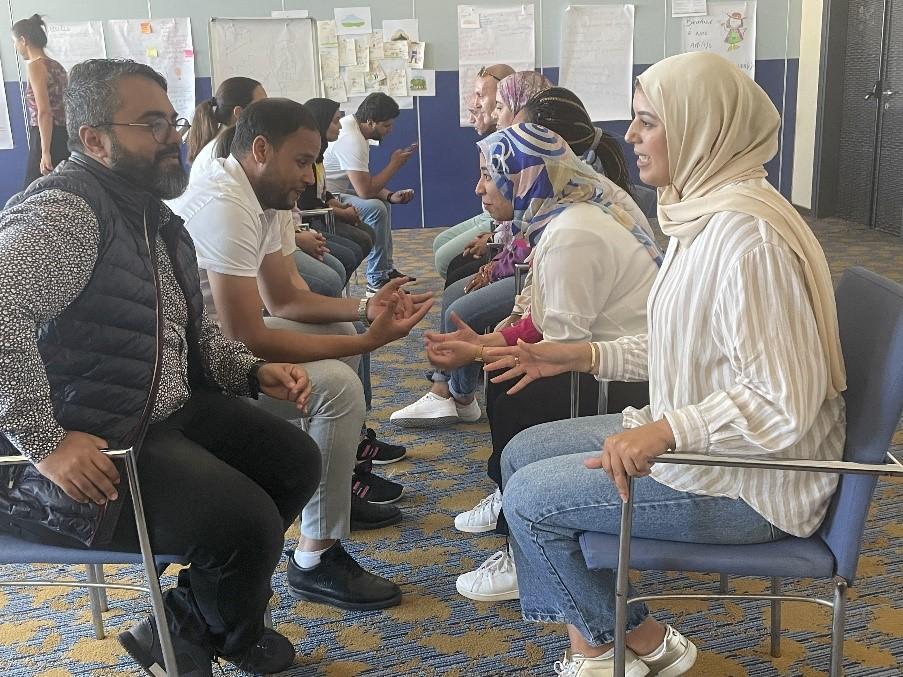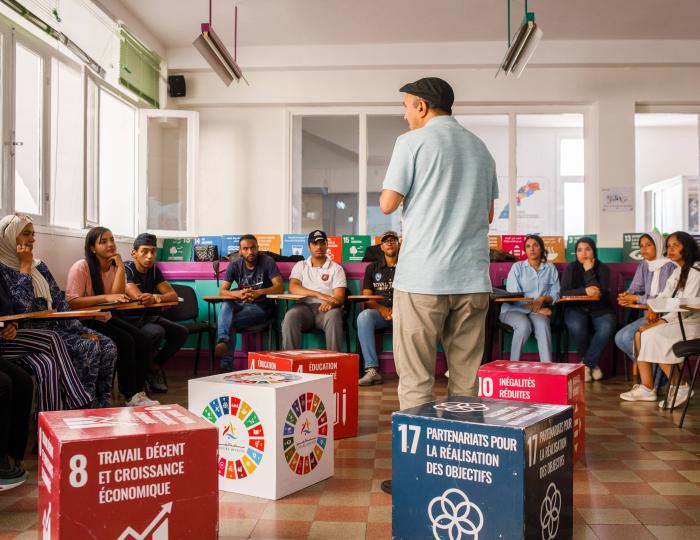

Despite sustained economic growth, the Moroccan population faces deep socio-economic inequalities, aggravated by the health crisis. Young people with few or no qualifications are the most marginalised segment of the population.
In this context, there is an urgent need to strengthen actions in favour of young people without qualifications.
The Najah project, in partnership with the local associations Al Karam, 100% Mamans and l'Heure Joyeuse, aims to contribute to the socio-economic integration of young Moroccan men and women in urban (Casablanca, Marrakech, Safi, Tangiers) and rural (Ouled Hassoune) areas. This is done by strengthening their employability, accompanying them towards professional integration, setting up training and entrepreneurial support courses, and supporting organisations working for the professional integration of young people who are distant from employment.
With this in mind, 18 educators and trainers from our three local partners took part in a training course on 27-28 and 29 September, in order to set up actions to cultivate relations with local companies. The topics covered by the speakers, Maëva Raux, Head of Development and Pedagogical Engineering - Pole Insertion and Marie-Thérèse Gendron, retired territory director, included identifying companies and dynamic sectors, how to adopt the right posture to enter into a relationship with a company manager, provide answers to possible apprehensions and sharing practices.
The objective of this training was for the professionals to reflect together on how to better respond to the needs of young people and companies, to find solutions together in order to contribute to the reinforcement of young people's employability and support towards entrepreneurship (internships in companies, self-entrepreneurship, mastering the job interview, etc). The training highlighted problems which are common to the various regions represented, the difficulty of re-establishing links with companies after a difficult period, such as the health crisis of 2020-2021, for example. The facilitation techniques and tools provided by the speakers will enable educators to work on the methodology to be put in place in order to better solicit local companies so that they embrace the objectives of reintegration and employability of the young people supported.
The aim of the project is to support 3150 young Moroccan men and women aged between 15 and 30, who have difficulty accessing employment, at least 40% of whom are girls, with a view to their integration through employment or entrepreneurship.
